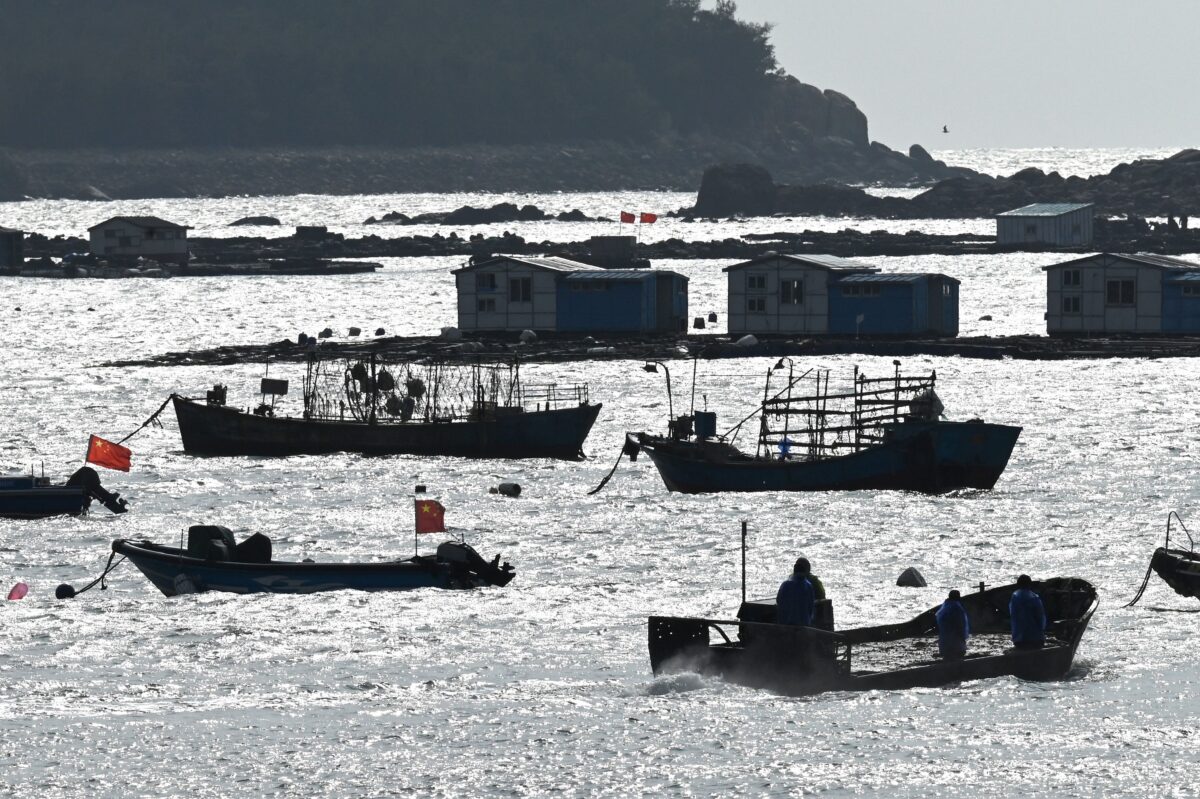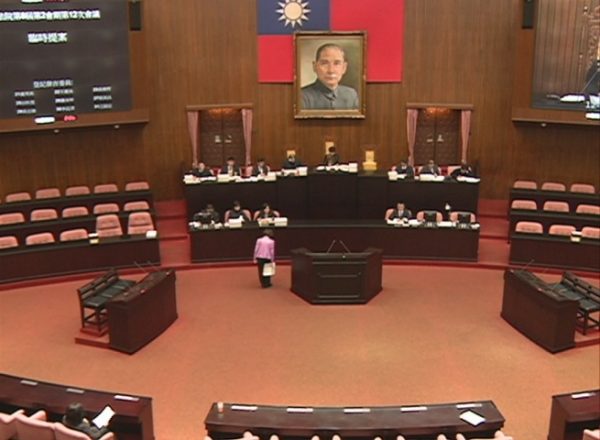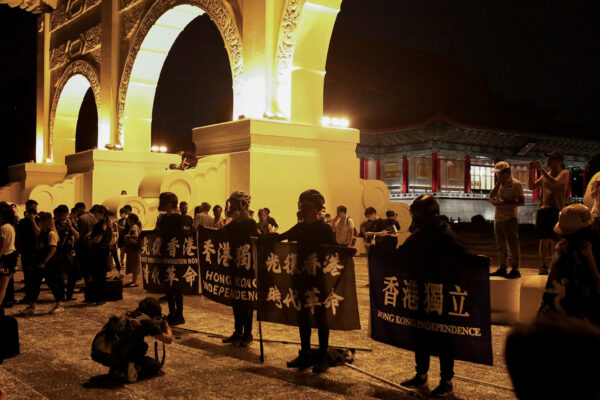


The Cross-Strait Service Trade Agreement has recently become a hot topic during Taiwan’s national election. Candidates from different parties have been urged to express their stance on it to the public.
Professional groups have protested against the controversial agreement with China, which has been waiting for ratification by Taiwan’s Legislative Yuan for nearly a decade.
Taiwan’s beauty and hairdressing industry, traditional Chinese doctors, and Chinese and Western pharmaceutical companies have rallied in front of the Legislative Yuan on July 7 and July 11 to call on the lawmakers to not ratify the service trade agreement that was signed by former Taiwanese president Ma Ying-jeou with the Chinese communist regime.
Experts pointed out that if the service trade agreement comes into effect, it would open up Taiwan’s door to Chinese capital and personnel, endangering Taiwan’s national security.
The service trade agreement was signed in Shanghai on June 21, 2013. It aimed to open up trade between communist China and Taiwan’s (Republic of China) economies in service industries such as banking, health care, tourism, film, telecommunications, and publishing. The former Taiwan president Ma signed it with China in secrecy, which is deemed undemocratic. It has never been ratified due to public opposition in Taiwan. It was one of two planned follow-up treaties to the 2010 free trade treaty “Economic Cooperation Framework Agreement”; the other, the Cross-Strait Goods Trade Agreement, had not yet been negotiated because of public opposition.
When it was sent to Taiwan’s Legislative Yuan for review and ratification on March 17, 2014, Chang Ching-chung, a pro-China legislator of the Kuomintang, tried to make the treaty automatically effective through a technicality in Taiwanese law by announcing that the review of the service trade agreement exceeded 90 days, which deemed the review completed, and it should be sent to the Legislative Yuan for record keeping. As a result, it triggered mass protests against it, know as the “Sunflower Movement.” Subsequently, the service trade agreement and related goods trade agreement has been tabled.
During current Taiwan presidential election campaign, Taiwan’s People’s Party presidential candidate Ko Wen-je and the Kuomintang presidential candidate Hou Yu-ih have claimed that the ratification of the service trade agreement should restart.
Taiwan’s beauty and hairdressing industry and practitioners chanted “if the service trade agreement is passed, it’s difficult for us to make a living” outside the Legislative Yuan on July 7. Chen Desheng, chairman of the Taipei Women’s Beauty Business Association, said: “It [the agreement] was opposed by the industry more than 10 years ago. If they really approved the service trade agreement, all the beauty and hairdressing businesses in Taiwan will join together to take to the streets to protest.”
Representatives of Taiwanese traditional Chinese medicine practitioners and Chinese Western pharmaceutical companies went to the Legislative Yuan on July 11 to present their concerns. Chen Po-yuan, secretary-general of the National Federation of Traditional Chinese Physician Associations of the Republic of China, said that if the service trade agreement is approved, it would cause chaos in Taiwan’s traditional Chinese medicine industry, destroy the long-established and stable medical system, and reduce the quality of Taiwan’s medical care.
Hsiao Hung-chih, a traditional medicine pharmaceutical sector representative, said that the agreement would allow Chinese resources to flood in, greatly harming Taiwan’s Chinese and Western medicine industries.
Lawyer Chen Yishen, a political commentator, told The Epoch Times that when Mr. Ma signed the service trade agreement with the Chinese Communist Party (CCP), he hoped to make Taiwan’s economy closely integrated with China’s. In fact, it played into the CCP’s strategy which is to “force reunification through economics,” that is, through the service trade agreement to firmly control Taiwan’s economy, Taiwanese are forced to accept the CCP’s “peaceful reunification.”
Mr. Chen said that CCP’s leader Xi Jinping wants to annex Taiwan, but he knows that “unification” by force will not win, so he reiterated “peaceful reunification” at the CCP’s recent national congress last year.
Mr. Chen pointed out that if the service trade agreement gets approved, it may be “a Trojan horse by the CCP” that could lead to Taiwan’s demise. “Because opening up to Chinese capital and Chinese personnel to Taiwan will make it easier for the CCP’s agents to sneak in as well. In the future, they may apply to become citizens of the Republic of China [Taiwan], which will affect Taiwan’s elections. The service trade agreement also allows Taiwan’s capital and talents to flow to China, hollowing out Taiwan’s economy and affecting national security,” he said.
Fu Tang, a Hong Kong citizen in exile in Taiwan, also warned that Taiwan should be careful of the CCP’s “trojan horse” service trade agreement. He told The Epoch Times that Taiwan has been heavily infiltrated by the CCP, and he hoped that what happened to Hong Kong should be a cautionary tale for the Taiwanese people. “By the time of the anti-CCP’s extradition law movement in Hong Kong in 2019, Hong Kongers found that the CCP had controlled almost 70 percent of Hong Kong’s economy, enterprises, and food. If Hong Kongers resist, [the CCP] will cut off the supply of resources to Hong Kong to make people kneel down and beg them.”
Hong Tsai-lung, a member of the Taiwan Fair Trade Commission, said in a political and economic lecture held by the Taiwan Inspirational Association (TIA) that if he compares the CCP’s military planes and warships around Taiwan with the approval of the service trade agreement, he thinks that the latter is more dangerous because it will open up Taiwan to a large number of personnel from communist China, which would have a great impact on Taiwan.
“In general, when countries sign service trade agreements, the political and economic systems of the countries are relatively close, and people on both sides need to trust each other. Therefore, before signing the service trade agreements with China, Taiwan should first conduct economic, labor, and environmental impact assessments,” he said.
Zhong Yuan contributed to this report.


